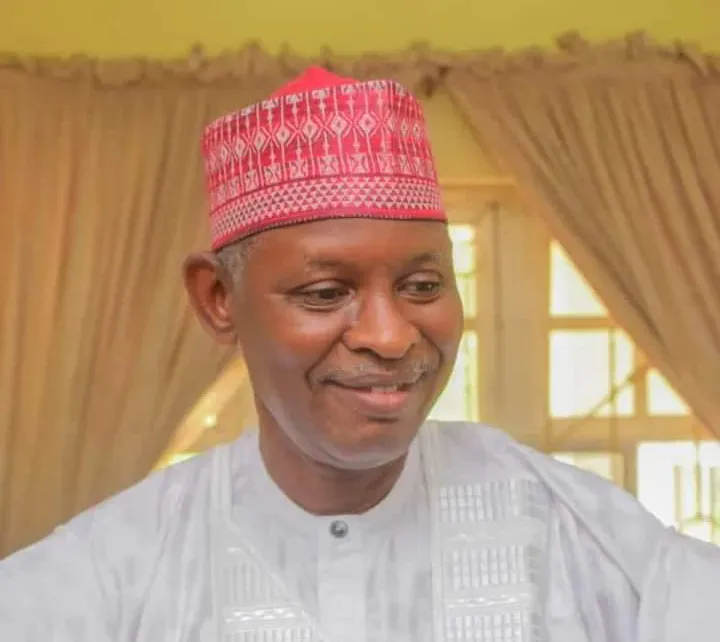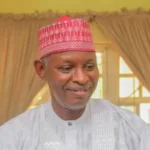The two public advisories issued in the past few days by the governor-elect in Kano State, Abba Kabir Yusuf of the New Nigeria People’s Party (NNPP) have continued to generate controversy with divergent views springing up for and against them.
While on one side, the state government and the supporters of the ruling All Progressives Congress (APC) have been chastising the governor-elect for the advisories, accusing him of constituting himself as another government while Governor Abdullahi Umar Ganduje still has about two months to the end of his tenure, those for it led by supporters of the NNPP including some private citizens, believe the advisories were in order and necessary to give a clear picture of what to come from May 29.
Since the controversy began, supporters of the NNPP have been posting pictures, on social media, of constructions erected on public properties including schools, hospitals, courts as well as the Eid ground, to justify the need for such a public advisory, insisting that it was incumbent upon the incoming government to “correct the anomaly”.
The governor-elect had on March 30 issued his first advisory titled “Public advisory on the ongoing constructions in public places” where he warned developers that have ongoing construction in “public places” to discontinue any work.
Yusuf, through his Chief Press Secretary, Sanusi Bature, said public spaces in the advisory include: “All schools in the state, all religious and cultural sites in the state, all hospitals in the state, all graveyards in the state, and along the city walls of Kano.
“You are also advised to discontinue the demolition of, and the construction on, all existing public buildings belonging to the government and people of Kano State,” he said, adding that the advisory was in line with his incoming administration’s resolve to “restore Kano City’s Masterplan” and as such any contravener of this advisory “does so at his/her on risk”.
In his second advisory issued on Saturday, Yusuf also said no lender (domestic or international) should approve and issue any loan facility to Kano State government without the express consent of the incoming administration and that any such loan facility approved and issued to the Kano State government between the date of election and the date of swearing-in without explicit knowledge and consent of the incoming administration will not be honoured by the new administration.
The governor-elect added that all terms and conditions of existing “loan facilities shall be renegotiated by the new administration guided by the utilisation audit/review of each loan facility.”
Wait till you take oath before issuing directives – govt
But reacting to the first advisory, the Kano State government said it was unfortunate that the governor-elect was constituting himself into a government within a government, advising him to wait until he takes oath of office before exercising executive powers.
The state’s Commissioner for Information and Internal Affairs, Muhammad Garba, in a statement said the advisory issued by the governor-elect has generated a lot of tension in the state and advised him to desist from such in order to avoid causing confusion.
Garba, thereafter, called on individuals and organisations, who acquired land after following due process and procedures, not to be threatened by the directive.
Also speaking on the matter, the state governor, Abdullahi Umar Ganduje told journalists in Kano that “that kind of advisory is baseless. He is talking as if he is the governor of Kano State. He is not yet the governor of Kano State.”
The governor, who said his party would be challenging the emergence of Yusuf as governor-elect before the election tribunal, added that “for somebody (referring to the governor-elect) to start making such speeches, you can judge that he is starting on a very wrong footing”.
Legal experts weigh in
But legal experts have weighed in on the controversy, positing that at best, what the governor-elect was doing with the public advisory could best be described as an expression of intention and not a directive, arguing that this was because the governor-elect does not have any constitutional right to issue directive as it relates to government policies.
Barrister Ibrahim Aliyu Nasarawa, a former Vice President of the Nigerian Bar Association (NBA), told Daily Trust that the governor-elect was just expressing his own intention and as such could not be binding on anyone.
He said since a government is created by law, whatever such government does legally becomes binding on the subsequent government and can only be undone by following legal procedures.
“It’s a matter of law. Those public advisories are not legally binding on any party. There is nothing like an office of governor-elect. It is only when he is sworn in as a governor that he can do whatever he likes insofar it is legally possible,” Barrister Nasarawa said.
A senior lecturer in the Faculty of Law, Bayero University, Kano, who asked not to be identified, said that whether an expression of intention or public advisory, such can be interpreted as a contravention of the constitution.
“There are procedures that have to be followed before you can assume the office of the governor and execute certain functions. Constitutionally, he (governor-elect) has to wait until he is sworn in before he can perform whatever function.
“Whatever you call it, expression of intention or whatever, the first thing that should come to mind is ‘does he have the power to do that? Has he been empowered by the constitution or any provision of the law of the state to do that?’ That is why I argue that he has to be sworn in as the governor and then he can perform whatever function that is given to him by the constitution or any other legislation or law in Nigeria. But prior to that, no matter what he calls it, he does not have the power or mandate to do that.
“He can do other things that have no connection to the government, preparatory things but for him to assume the role of the governor is unknown to law,” he said, adding that further legal interpretations could, however, be sought before the court of law on the matter.

 Join Daily Trust WhatsApp Community For Quick Access To News and Happenings Around You.
Join Daily Trust WhatsApp Community For Quick Access To News and Happenings Around You.

